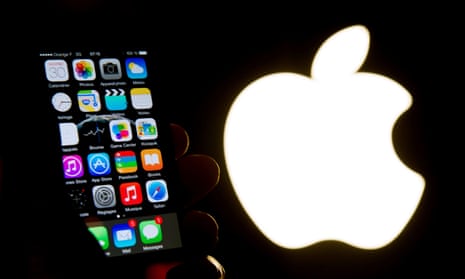French parliamentary deputies, defying government wishes, have voted in favour of penalising smartphone makers which fail to cooperate in terrorism inquiries, entering a controversy that has pitted the FBI against Apple in the United States.
The move came in the form of an amendment to a penal reform bill that was receiving its first reading in parliament.
The wider bill foresees the end in May of the state of emergency that has been in place in France since deadly jihadist attacks in Paris last November.
Given the government’s reluctance to take on the big phone companies in this way, it remains to be seen whether the thrust of the amendment can survive the lengthy parliamentary process that remains before the bill becomes law.
The controversial amendment, drafted by the rightwing opposition, stipulates that a private company which refuses to hand over encrypted data to an investigating authority would face up to five years in jail and a €350,000 (£270,000) fine.
Telecoms operating companies would be liable to lesser penalties but would still face up to two years in jail.
The move in France came the day after a broad array of technology firms joined Apple’s legal fight concerning encryption in the US, warning of a dangerous precedent if the company is forced to help the government break into a locked iPhone.
Apple has argued that the only way to unlock the phone is to introduce a weakened operating system, which could potentially leak out and be exploited by hackers and foreign governments.
The FBI has argued that by introducing encryption which can lock data, making it only accessible to the user, Apple and others are essentially creating “warrant-proof zones” for criminals and others that will cripple law enforcement and jeopardise public safety.

Comments (…)
Sign in or create your Guardian account to join the discussion